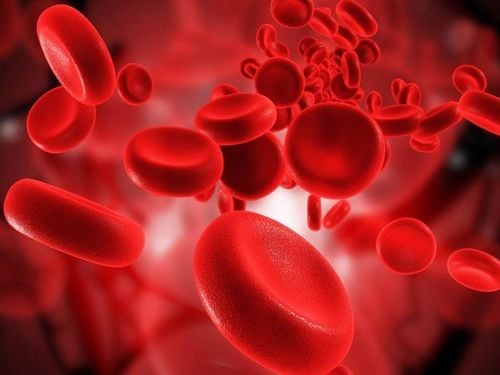This is an automatically translated article.
Albutein is a transparent, slightly viscous liquid, it is almost colorless, yellow, amber or green. Albutein medicine is packaged in bottles of Albutein 25% 50ml or 100ml and used by infusion.
1. What is Albutein?
Albutein medicine has the main active ingredient is Albumin . Albutein belongs to the group of blood drugs, blood products - macromolecular solutions. The dosage form of the drug is in the form of a solution for intravenous infusion of 25%. Packing is Albutein 25 50ml, 100ml bottles.
The human albumin component quantitatively accounts for more than half of the total plasma proteins and represents about 10% of the protein synthesis activity of the liver. Human albumin 200 g/l has a corresponding increase in tone.
Albumin's most important physiological function is to participate in blood pressure and transport function. Albumin stabilizes circulating blood volume and is a carrier of hormones, enzymes, drug products, and toxins.
2. What disease does Albutein treat?
Albutein is indicated for use in the following cases:
Used to restore and maintain circulating blood volume with proven volume depletion and appropriate colloid use. The choice of Albumin preparations instead of artificial glues will depend on the individual clinical situation, based on official recommendations.
3. Usage and dosage of Albutein
How to use Albutein:
Human albumin can be used directly by intravenous injection or diluted in isotonic solutions (namely 5% Glucose solution or 0.9% Sodium chloride solution). The infusion rate must be adjusted on a case-by-case basis and indicated. In plasma exchange, the infusion rate must be adjusted according to the elimination rate. Dosage of Albutein:
Albumin concentration, dosage and rate of infusion must be adjusted according to the specific condition of each person. The dosage needed depends on the medical condition, the severity of the injury or illness, and the continuing loss of fluid and protein. Treatment of overdose/missing dose:
In case of overdose: Hyperkalemia may occur if the dose and infusion rate are too high. At the first clinical signs of cardiovascular overload including headache, dyspnoea, venous obstruction or hypertension, increased central venous pressure, and pulmonary edema, the infusion should be discontinued immediately and Carefully monitor the hemodynamic parameters of Albutein users. In case of missed dose: You need to follow the instructions of the medical staff.
4. Undesirable effects of the drug Albutein
When using Albutein, you may experience the following undesirable effects:
Mild reactions such as flushing, skin rashes, fever and nausea rarely occur. These reactions usually disappear rapidly when the infusion rate is slowed or the infusion is stopped. Very rarely, serious reactions such as shock or anaphylaxis have occurred. In these cases, the treating physician will advise to stop the infusion and initiate appropriate treatment. Instructions on how to handle unwanted effects: When experiencing unwanted effects of Albutein, it is necessary to stop using and notify the treating doctor or go to the nearest medical facility for timely treatment and treatment. correct regimen.
5. Some notes when using the drug Albutein
Albutein is contraindicated in the following cases:
People with hypersensitivity or hypersensitivity to preparations containing Albumin or to any of the excipients. Precautions when using Albutein:
Suspected allergic or anaphylactoid reactions need to stop injecting Albutein immediately. In the event of anaphylaxis, standard medical treatment for anaphylaxis should be administered. Albutein should be used with caution in conditions where hypervolemia and its consequences or blood thinning may pose a special risk to you such as: Decompensated heart failure, hypertension pressure, esophageal varices, pulmonary edema, visceral bleeding, severe anemia, renal and retrorenal anuria. The colloidal permeability of human Albumin 200 g/l is approximately four times that of plasma. Therefore, when using concentrated albumin preparations, care must be taken to ensure that the user is adequately hydrated. The treating physician will prescribe careful monitoring to prevent circulatory overload and hyperhydration. Use of Albutein with special subjects:
Ability to drive and use machines: There is no influence of Albutein on the ability to drive and use machines. Pregnancy: The safety of Albutein for use in pregnancy has not been established in controlled clinical trials. However, clinical experience with Albutein has shown no harmful effects on pregnancy, or on the fetus and neonate. No animal reproduction studies have been performed with albutein 200g/l. Lactation: There are currently no studies on the use of Albutein in humans or animals during lactation. You should only use Albutein when necessary as prescribed by your doctor. The article has provided information about the uses, dosage and precautions when using Albutein. To ensure safety for your health and maximize the effectiveness of your treatment, you need to take Albutein exactly as directed by your doctor.
Please dial HOTLINE for more information or register for an appointment HERE. Download MyVinmec app to make appointments faster and to manage your bookings easily.













